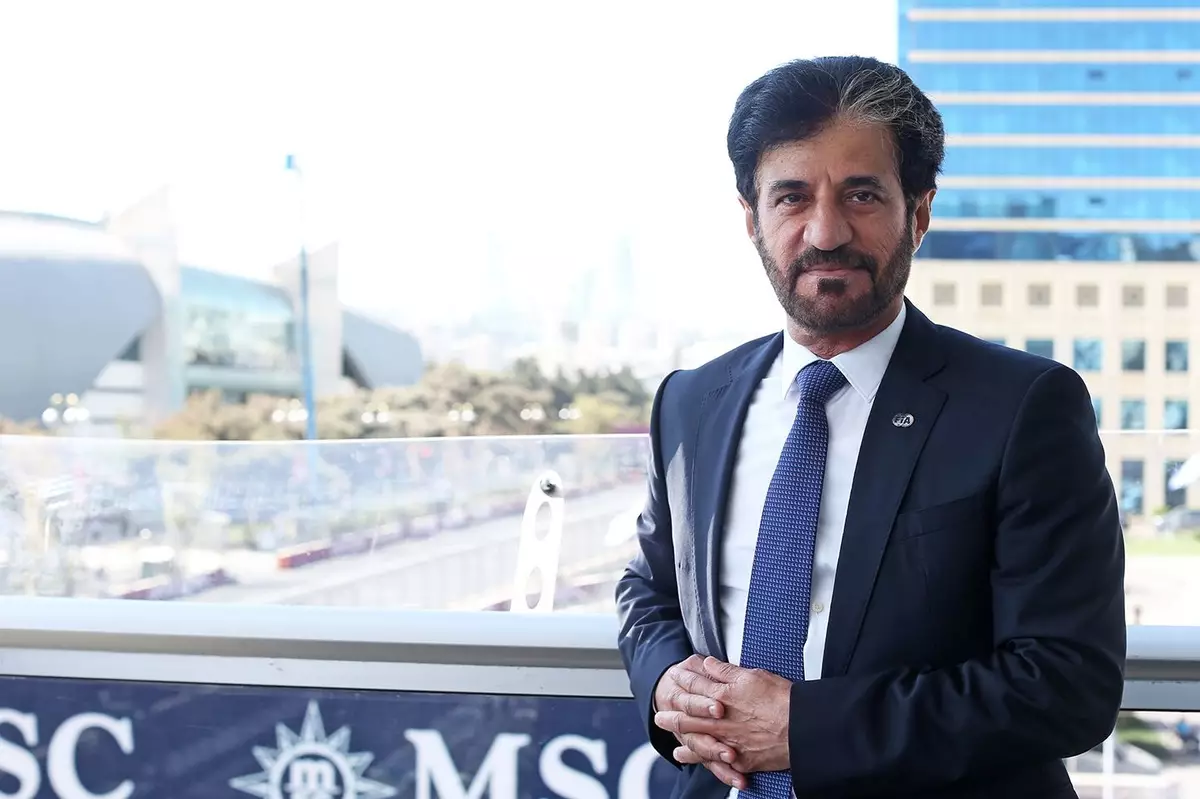In the ever-evolving landscape of motorsport governance, the role of media cannot be undermined. FIA president Mohammed Ben Sulayem has recently shared his grievances towards British media, expressing what he perceives as unfair treatment during his time in office. His declaration comes on the heels of comments made by renowned automotive designer Adrian Newey, who revealed his transition from Red Bull Racing to Aston Martin on the High Performance podcast. Newey passionately defended both Max Verstappen and Sebastian Vettel against perceived media demonization, a sentiment that resonated with Ben Sulayem.
Ben Sulayem’s discontent seems to stem not just from the media’s approach towards drivers but towards himself and his presidency. He emphasized feeling convicted by the media, lamenting their persistent critiques and what he describes as unfounded accusations. This discourse reflects a broader concern for the treatment of public figures within motorsport, raising critical questions about the standards of media accountability and the ethics of journalism in the high-stakes world of sports.
In a recent interview with Autosport, Ben Sulayem firmly asserted the independence of the FIA, pointing out that neither the media nor external pressures dictate the governance of the organization. “They are after selling and getting more coverage for themselves,” he stated, which highlights a contentious dynamic between media aspirations and the objective realities of governing motorsport. His insistence on the FIA’s democratic foundation resonates with those who advocate for member-driven leadership in sports organizations.
Ben Sulayem’s remarks also touch on the essence of sporting integrity, emphasizing that the FIA’s power originates from its member clubs and the General Assembly. This accountability framework should ideally serve to insulate the organization from sensational reporting and promote a more constructive dialogue about motorsport reforms. The challenge remains: how to balance the voices of the media and the needs of the sport without compromising integrity on either side.
Despite critiques from the media, Ben Sulayem appears resolute about the state of the FIA, asserting that it is now in a healthier position than at the end of 2021 when he took office. The focus on internal efficiency and aligning the organization with the needs of its member clubs suggests a refreshing pivot toward community engagement. “There is no FIA without the members,” he emphatically stated, reinforcing the organization’s purpose and responsibility to its constituency.
His commitment to delivering on his manifesto points to a proactive agenda aimed at addressing the challenges faced by the FIA. This includes generating revenue and restructuring the organization to better serve its stakeholders. Notably, Ben Sulayem’s vision incorporates a more collaborative approach that respects member input, thereby fostering trust and a sense of shared responsibility within the motorsport community.
As Ben Sulayem prepares for potential re-election, his vision for the FIA extends beyond mere governance; it encompasses a robust strategy for fostering democracy within the organization. His openness to an electoral challenge reflects confidence in his approach while serving as an invitation for constructive debate among stakeholders. At the crux of this discussion is a fundamental desire for transparency and reform within motorsport governance.
Ben Sulayem’s assertion that “democracy all the time, not part of the time” underscores the urgent need for the FIA to reaffirm its commitment to participatory leadership. This extends to how the organization interacts with media and the larger public. The willingness to advocate for transparency can pave the way for improved media relations, a shift that may ultimately work in favor of both the FIA and the journalists covering the sport.
In a deeply interconnected world, the relationship between media and sport governance is crucial. Mohammed Ben Sulayem’s candid reflections on his presidency reveal significant insights into the challenges faced by leaders in high-profile environments. His emphasis on the independence of the FIA, the importance of member engagement, and a renewed focus on transparency highlights a roadmap for navigating future controversies.
As he eyes re-election, the imperative lies not only in addressing past criticisms but also in fostering a dialogue that can fortify the integrity of motorsport governance. The task ahead involves balancing media scrutiny with organizational accountability, ensuring that both sides can work constructively towards the shared goal of promoting a robust and dynamic motorsport culture. The future trajectory of the FIA might well hinge on how effectively these challenges are met in the coming months.


Leave a Reply